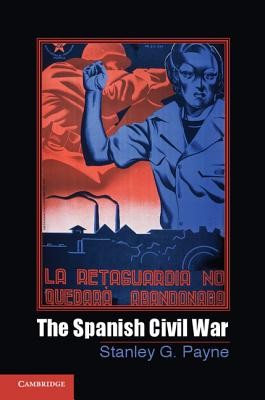
- We will send in 10–14 business days.
- Author: Stanley G Payne
- Publisher: Cambridge University Press
- ISBN-10: 0521174708
- ISBN-13: 9780521174701
- Format: 15.2 x 22.6 x 2.3 cm, softcover
- Language: English
- SAVE -10% with code: EXTRA
Reviews
Description
This book presents an original new history of the most important conflict in European affairs during the 1930s, prior to the events that produced World War II - the Spanish Civil War. It describes the complex origins of the conflict, the collapse of the Spanish Republic, and the outbreak of the only mass worker revolution in the history of Western Europe. Stanley Payne explains the character of the Spanish revolution and the complex web of republican politics, while also examining in detail the development of Franco's counterrevolutionary dictatorship. Payne gives attention to the multiple meanings and interpretations of war and examines why the conflict provoked such strong reactions in its own time, and long after. The book also explains the military history of the war and its place in the history of military development, the non-intervention policy of the democracies, and the role of German, Italian, and Soviet intervention, concluding with an analysis of the place of the war in European affairs and in comparative perspective of revolutionary civil wars of the twentieth century.
EXTRA 10 % discount with code: EXTRA
The promotion ends in 19d.20:34:44
The discount code is valid when purchasing from 10 €. Discounts do not stack.
- Author: Stanley G Payne
- Publisher: Cambridge University Press
- ISBN-10: 0521174708
- ISBN-13: 9780521174701
- Format: 15.2 x 22.6 x 2.3 cm, softcover
- Language: English English
This book presents an original new history of the most important conflict in European affairs during the 1930s, prior to the events that produced World War II - the Spanish Civil War. It describes the complex origins of the conflict, the collapse of the Spanish Republic, and the outbreak of the only mass worker revolution in the history of Western Europe. Stanley Payne explains the character of the Spanish revolution and the complex web of republican politics, while also examining in detail the development of Franco's counterrevolutionary dictatorship. Payne gives attention to the multiple meanings and interpretations of war and examines why the conflict provoked such strong reactions in its own time, and long after. The book also explains the military history of the war and its place in the history of military development, the non-intervention policy of the democracies, and the role of German, Italian, and Soviet intervention, concluding with an analysis of the place of the war in European affairs and in comparative perspective of revolutionary civil wars of the twentieth century.


Reviews